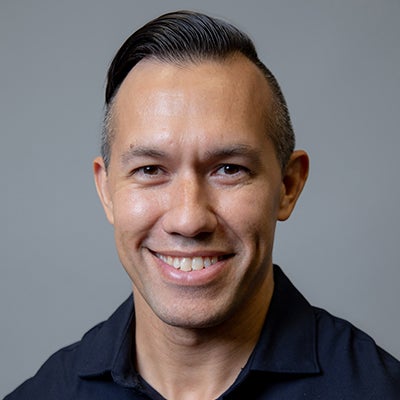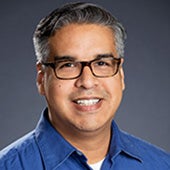Physical Culture and Sport Studies
Department of Kinesiology and Health Education
Our Ph.D. students come from a wide variety of preparatory programs including Kinesiology, Health, History, Classical Studies, Art History, American Studies, Journalism/Communications, Law, Women and Gender Studies, Sociology, Exercise Science and Sport Management.
Students admitted to the doctoral program take the basic core courses for the degree and then choose additional courses to develop the research methods and subject knowledge needed to become an academic expert in their research area.
The relationship between you and your doctoral advisor is crucial to your success as it is expected that you will be engaged in research during your time in the program. Finding an advisor who understands and can assist you with your research interests is, therefore, important. Our PCSS faculty members have slightly different skill sets and research interests, so please take a look at our faculty profiles and publications before contacting us about pursuing this degree. Faculty members Thomas M. Hunt, Brian Mills, and Charles Stocking each direct doctoral students. You are welcome to email them directly. Please include
- a brief statement of research interests
- undergraduate and master’s GPA (master’s degree not necessary for admission)
- your major(s)
- a brief description of other kinds of post-undergraduate academic work such as law school or other professional or military training
Doctoral students are expected to work closely with their advisor and other core faculty on research projects that enhance our understanding of sport history, physical culture history, sport management, Olympic studies, cultural studies, sport sociology, sport law, political science, and ethics/philosophy. In addition, doctoral students are encouraged to make use of the archival and book collections at the H.J. Lutcher Stark Center.
Before Applying
Candidates for admission to the Ph.D. program in Physical Culture and Sport Studies identify an area of scholarly interest that they would like to pursue in their doctoral work before applying for admission. Candidates are encouraged to contact Charles Stocking by email before completing the official online application. Applicants should include in that email a brief description of research interests, any post-undergraduate academic work (master’s, law school, etc.) and undergraduate GPA and major. Applicants should also indicate if they require financial assistance to pursue doctoral work at UT.
Please note that the Ph.D. Program in Physical Culture and Sport Studies is a doctoral-level program. Most applicants have a completed master’s degree in an affiliated discipline (Sport Management, History, American Studies, Sociology, Exercise Science) or have had some form of post-professional training such as law school. Possession of a master’s degree is not required for admission but is recommended. Because the Physical Culture and Sport Studies program is small and selective, applicants should possess a solid record of academic achievement.
Based on whether the student’s research interests match with those of the faculty in the program, whether the prospective student’s academic credentials are of an acceptable standard, and if space and funding (if needed) are available, applicants will then be instructed to complete the online admission forms located on the Graduate School Website. Three letters of reference, official transcripts and a full research statement will be required for the online application.
Anyone applying to our program must submit a writing sample. We suggest submitting either a chapter of your master’s thesis or an academic paper. You will receive an email directing you to a website where you will upload your sample after you complete the application.
Program of Study
Students seeking admission to the Ph.D. program in Physical Cultural and Sport Studies should first contact the faculty affiliated with the program to discuss research interests and determine if a faculty member is willing to sponsor them. Students must be accepted by a faculty member before admission. While prior training in either Kinesiology, American Studies, History and related fields, Sport Management, Sociology or Philosophy is preferred, students are welcome to apply from all disciplines. A completed masters’ degree is not required for admission. Doctoral candidates without a master’s degree, however, may be required to take additional coursework.
For more information on the doctoral program requirements, please contact Charles Stocking, Brian Mills, or Thomas Hunt and further information will be provided.
No Two Programs Are the Same. All Ph.D. programs vary depending on the research interests of the student and prior training. While there is a common core of knowledge that we want all students to possess reflected in the required core courses, students are encouraged to build their expertise in specialist areas beyond the core requirements by taking courses in their concentration that will enhance both their dissertation and their future career.
Our faculty views research as a collaborative forum for learning and the dissemination of new knowledge and all doctoral students are expected to work on articles for scholarly journals, present their research at meetings of learned societies, and be actively engaged in research while a student in the program. To understand more about the program and the kind of research our students participate in, see our graduate students.
Prerequisites
- KIN 349 History of Sport and Physical Activity or a(n) equivalent sport history course from a prior university that gives you a basic understanding of the history of ancient and modern sport from a global perspective. This prerequisite can be taken either at UT-Austin in the first semester if missing from the student’s transcript; it must be taken for a letter grade to fulfill prerequisite requirements.
- HIS 355N/AMS 355 Main Currents in American Culture to 1865 (Must be taken in year one if you do not have comparable coursework. One of these may be counted in the Concentration Area)
- HIS 360N/AMS 360 Main Currents in American Culture Since 1865 (Must be taken in year one if you do not have comparable coursework. One of these may be counted in the Concentration Area)
Required KIN Core Courses (15 Hours)
- KIN 395 Critical Issues in American Sport History
- KIN 395 History of Physical Culture and Alternative Medicine
- KIN 395 Physical Cultures of the Body: Race, History, and the Quest for Body Perfection
- KIN 395 History of the Sport Industry in America
- Three Hours from KIN 395 Sport Policy, KIN 395 Sport and International Relations, KIN 395 Sport Development, KIN 395 Sport Economics, or an additional KIN class approved by your advisor.
Research Methods (15 Hours)
- KIN 386 Qualitative Research Methods for Physical Culture and Sport Studies
- KIN 395 Directed Research: Archival Research Methods for Sport Historians
- KIN 396T Directed Research-Comprehensive Exam
- KIN 396T Directed Research-Historical Essays- Research and Writing
- 3 Hours of Statistics or Experimental Design Coursework as Approved by the Advisor
Concentration/Outside Field (6-12 Hours)
6-12 Hours of Graduate Coursework from a discipline outside Kinesiology and Health Education. You may elect to do hours in two fields, or 12-15 hours in one field, depending on research needs. These courses must be approved by the Advisor. American Studies and History are highly recommended for these outside courses.
Dissertation Courses (18 Hours)
- KIN 999R and 999W Dissertation Research and Writing
No Two Programs Are the Same. All Ph.D. programs vary depending on the research interests of the student and prior training. While there is a common core of knowledge that we want all students to possess, beyond that core doctoral students are encouraged to build their expertise in specialist areas by taking courses in their concentration that will enhance both their dissertation and their future career.
Our faculty views research as a collaborative forum for learning and the dissemination of new knowledge and all doctoral students are expected to work on articles for scholarly journals, present their research at meetings of learned societies, and be actively engaged in research while a student in the program. To understand more about the program and the kind of research our students participate in see the Profiles of our current students.
Faculty

Examines the management of systems for athlete development, including how different sport settings influence performance and participation over the lifespan. Focuses on re-imagining the youth sport experience, with a specific interest in the developm...

Examines the intersection of physical culture and international political history.
Accepting new students

Studies managerial economics in sport relating to the market power of pro sports leagues under three primary branches: industrial organization, labor markets, and public policy and economic development.

Studies the historical, philosophical, sociocultural, and political dimensions of sport and physical culture.

The History and Philosophy of the Body, Sport, and Physical Culture from Ancient Greece to the Present

Specializes in the history of strength and conditioning, doping, women and sport, and history of physical culture.
Affiliated Faculty

Teaches courses on sport history and strength and conditioning. Research focuses on physical culture history.

Focuses on the history of sport culture, particularly Olympic weightlifting, and its impact on society.


Physical Culture, Sports Photography, Sports Press History, Sports and the Visual Arts
Program Resources
Students have access to unique resources available for studying sport and physical culture at The University of Texas. The H.J. Lutcher Stark Center for Physical Culture and Sports includes the largest and most complete archive in the field of physical culture in the world. In addition, the Stark Center is recognized as an official Olympic Studies Center by the International Olympic Committee. The Stark Center is also the official repository of the UT Intercollegiate Athletic Department Media Relations Archives. The Center is recognized as one of the premier sport repositories in the world giving undergraduate and graduate students in our programs great advantages not available at other universities.
The holdings of the general libraries at the University of Texas are among the best in the world. The Dolph Briscoe Center for American History contains the archives of the University Interscholastic League and the records of the women’s physical education program at UT among other athletic resources.
The LBJ Presidential Library, the Jamail Center for Legal Research, the Harry Ransom Center, and the Nettie Lee Benson Latin American Collection are located on the UT-Austin campus and provide additional research opportunities.
Additional Resources
Program Starts: Fall
Deadline to Apply:
Priority: December 1
Final: May 1
Credit Hours Required: 66
Program Location: On Campus
GRE Required? No

Program Director
Charles Stocking

Graduate Program Administrator
Phillip Salazar
Let us know what your academic interests are within the College of Education and we’ll be in touch.


